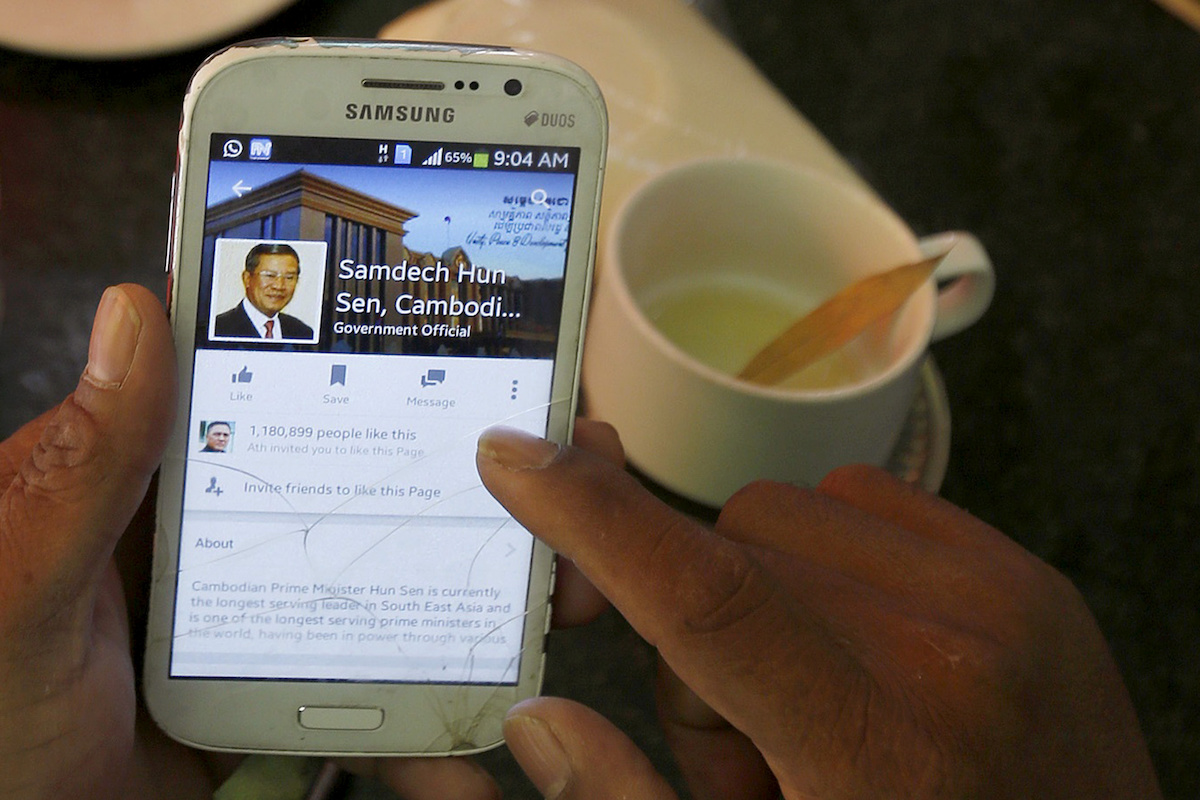Cambodia’s government has issued a decree establishing a China-style internet gateway that will allow online traffic to be controlled and monitored, prompting local concern that democratic freedoms could be under threat.
The 11-page decree announced on Feb. 17 seeks to facilitate and manage internet connections to help revenue collection, protect national security and maintain social order, culture and tradition.
The gateway’s operator will support authorities with “measures to prevent and disconnect all network connections that affect national income, security, social order, morality, culture, traditions and customs”.
It comes as Prime Minister Hun Sen’s government faces international criticism over a crackdown that has decimated civil society and the political opposition, resulting in a power monopoly for his party, and criminal charges and jail terms for many of its rivals.
The gateway is similar to that of China, an important economic ally for Cambodia, which has seen its ties with the United States and European Union deteriorate recently.
The decree gives service providers one year to connect to the gateway, but gave no timeframe for its launch.
It requires service providers to make users complete online forms with their correct identities and says failure to connect networks to the gateway would result in operating licenses being suspended and bank accounts frozen.
Chak Sopheap, executive director of the Cambodian Center for Human Rights, said the law had implications for free speech, privacy, data protection and public information, and Cambodia’s legal framework offered little protection for digital freedoms.
“The last few years have seen a sharp increase in the number of citizens being threatened, harassed and even prosecuted for their use of the internet and for exercising their right to free speech,” Chak Sopheap told Reuters.
Government spokesman Phay Siphan there was no order to the internet in Cambodia and the decree was less intrusive than regulations in the United States and Britain.







